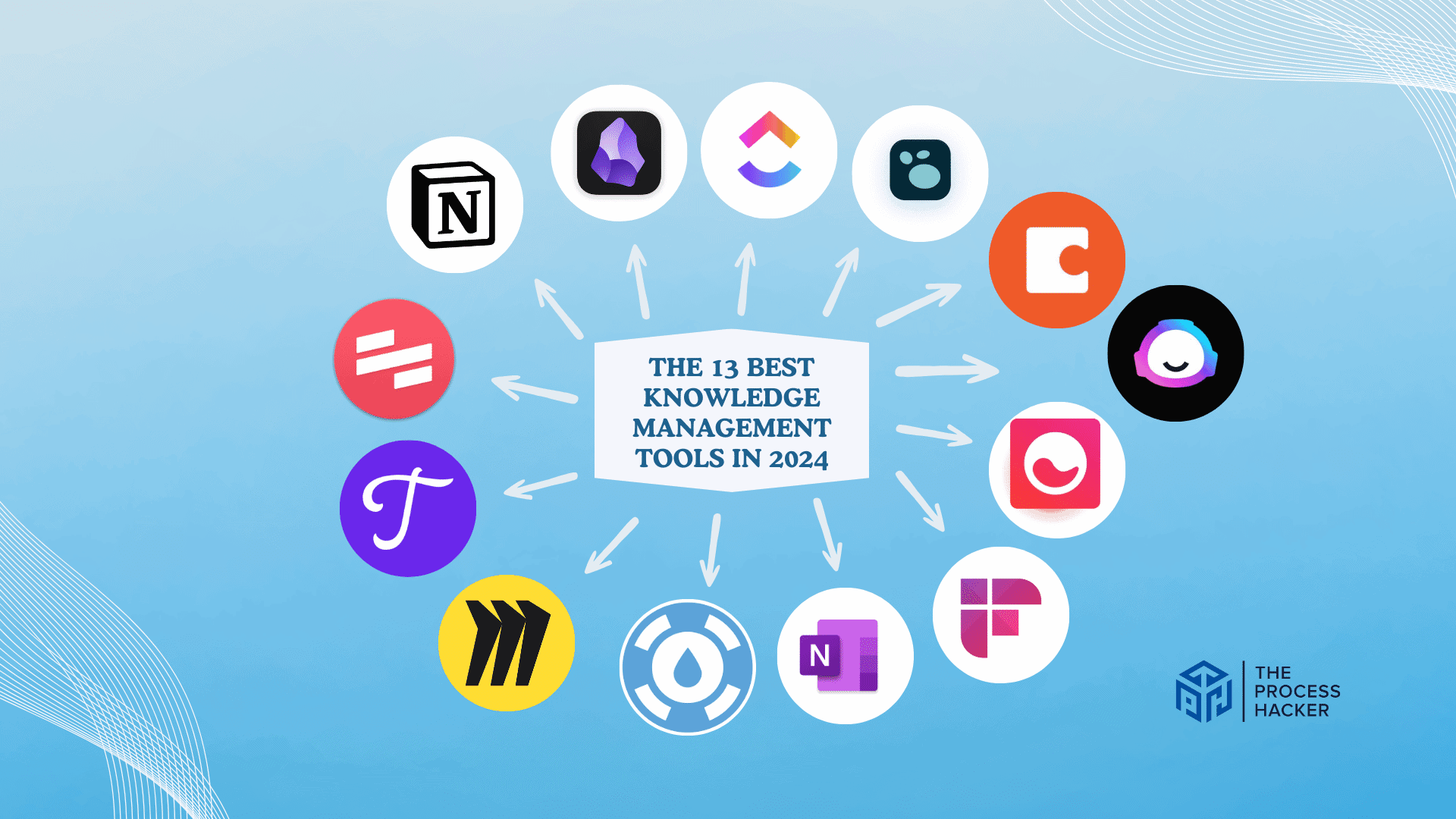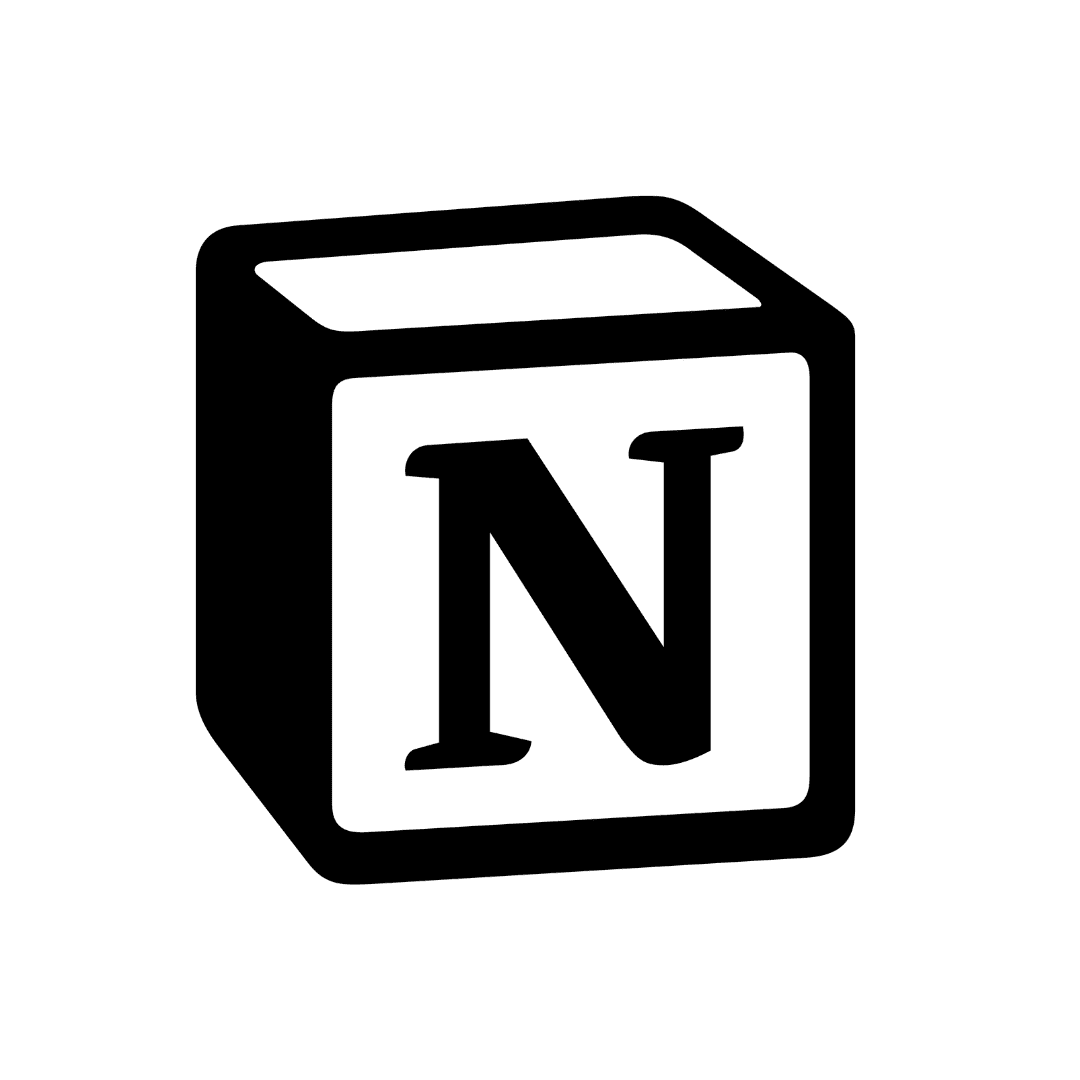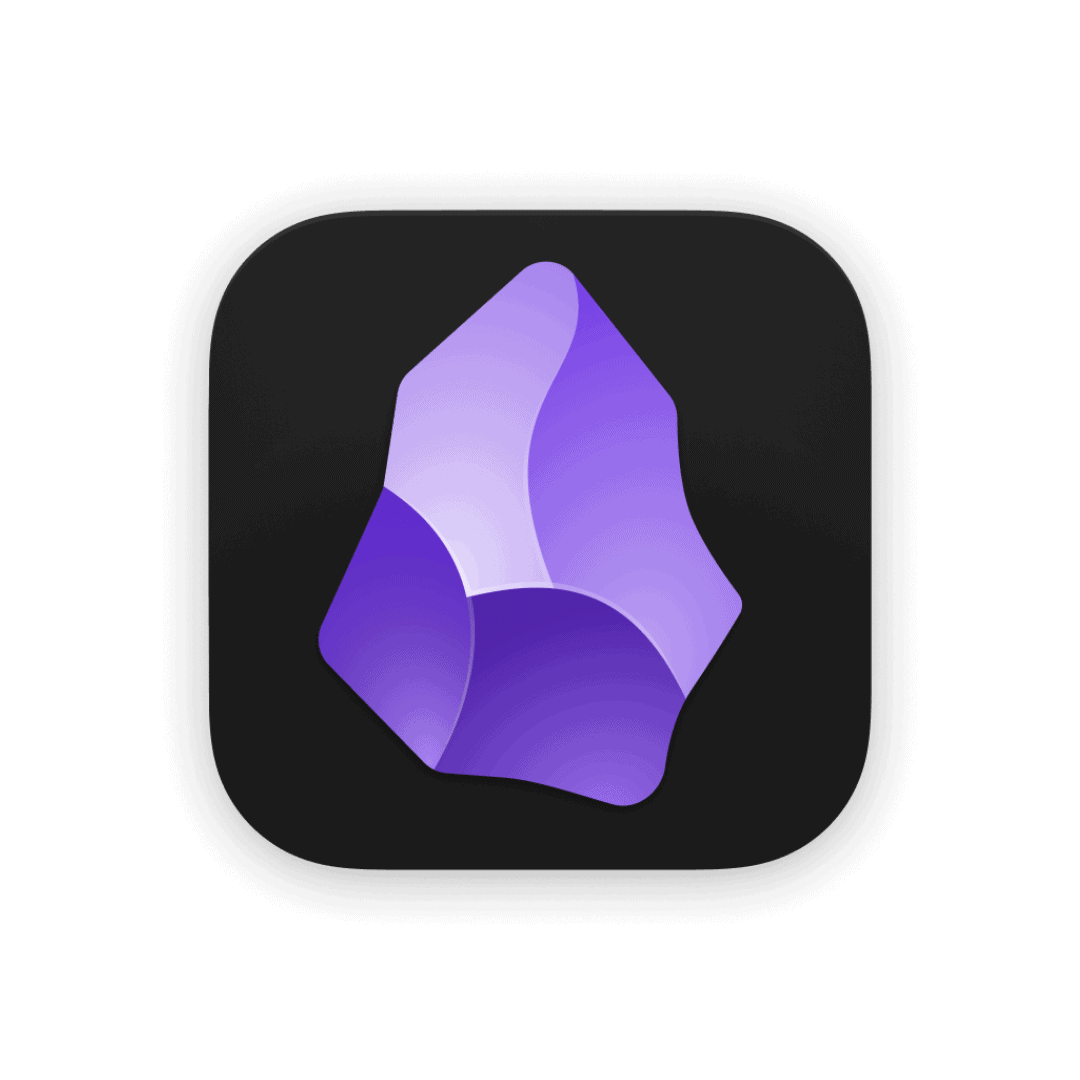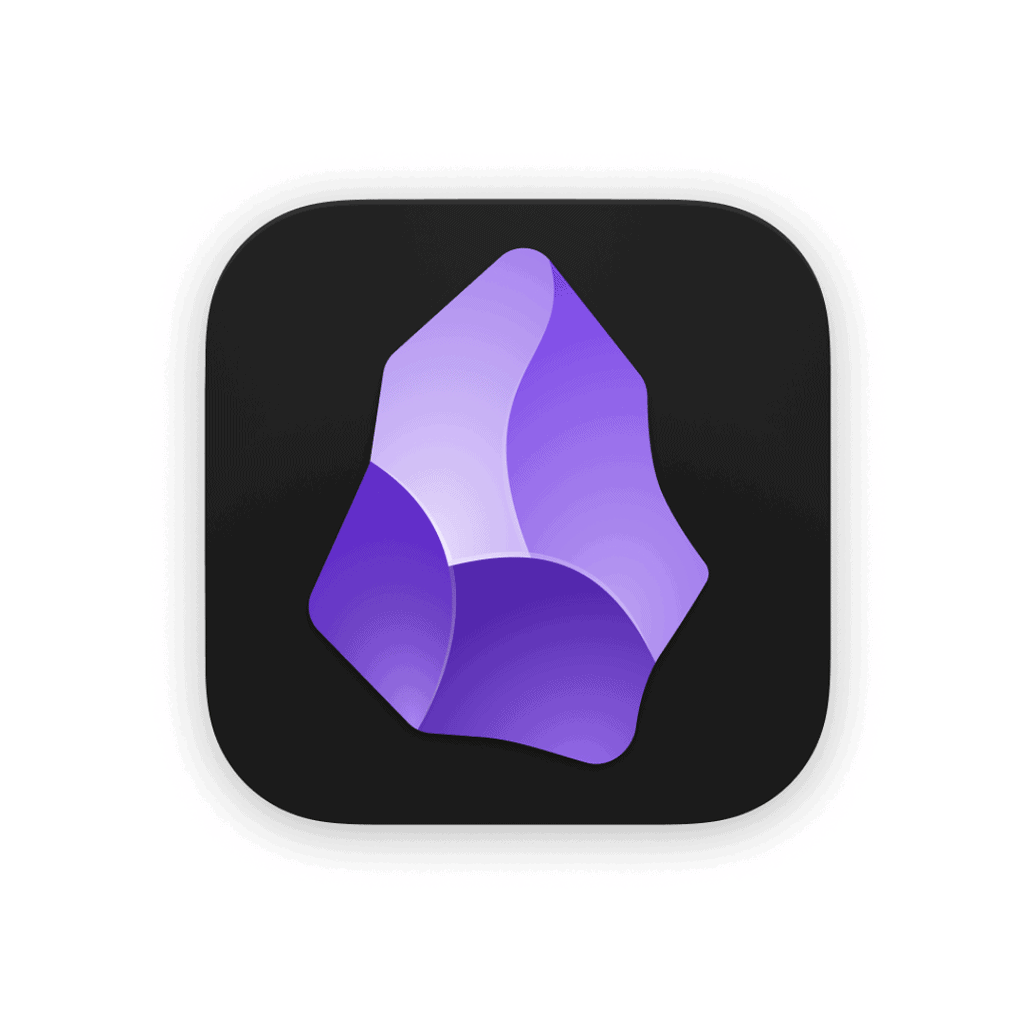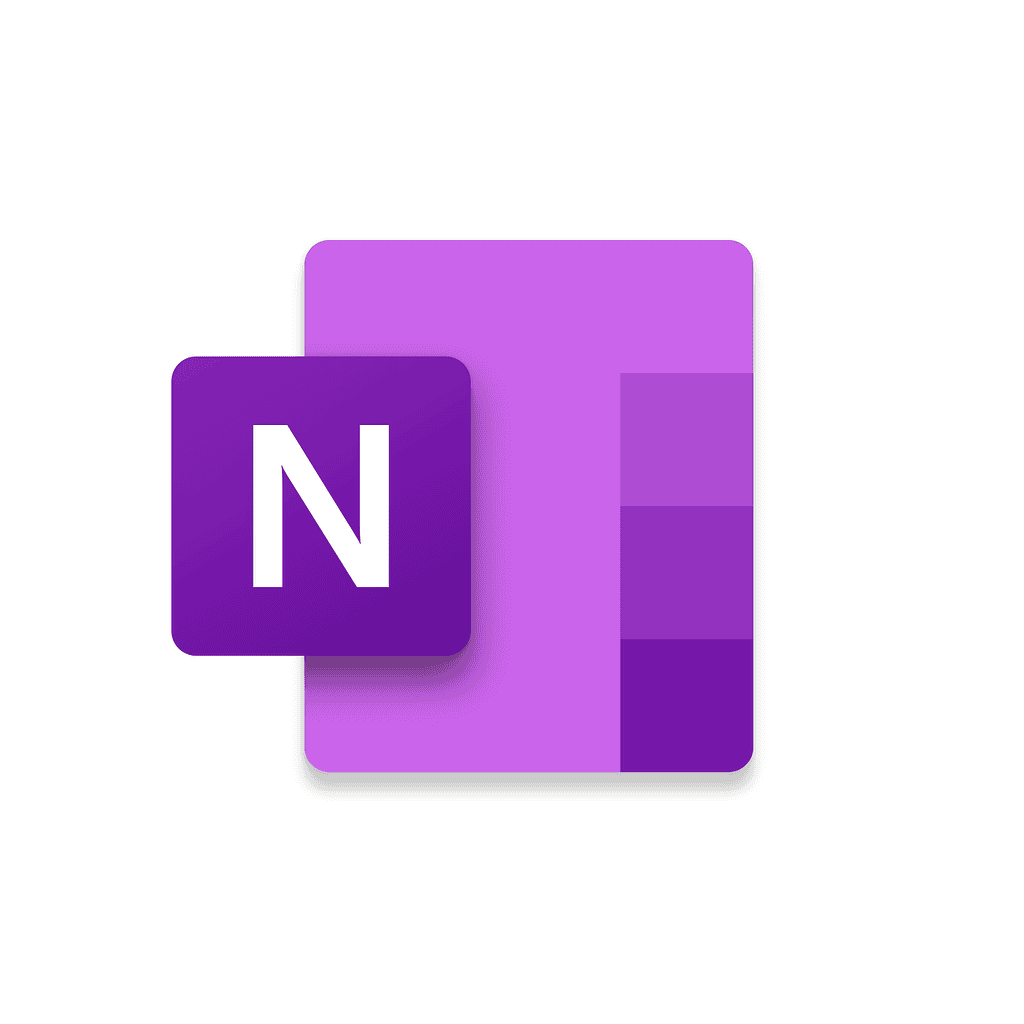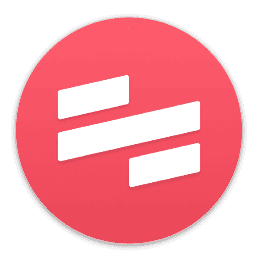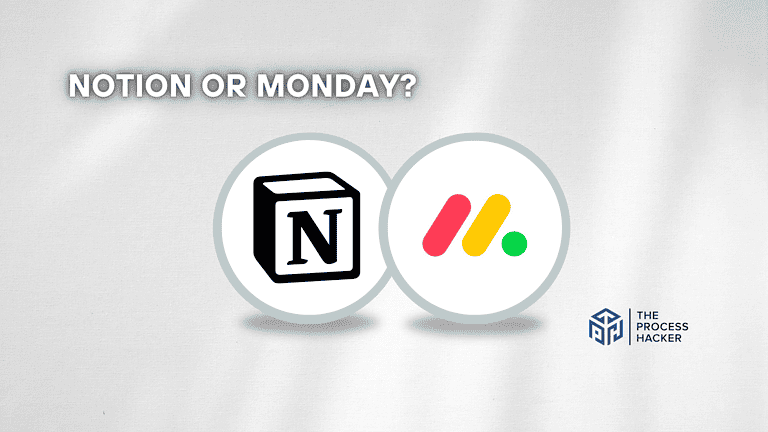The 13 Best Knowledge Management Tools In 2024
Knowledge is power; successfully recording, sharing, and taking advantage of it across organizations and teams has never been more important.
As the amount and variety of information increase rapidly, knowledge management technologies have grown dramatically over the last decade to assist teams in cutting through the noise and harnessing insights from their collective experiences and learnings.
This overview compares the top 13 knowledge management systems based on functionality, user experience, features, cost, and customer feedback.
If you purchase through our partner links, we get paid for the referral at no additional cost to you! For more information, visit my disclosure page.
Whether you need knowledge-based software for sharing, documentation, expertise location, or communities of practice, we recommend the best options for your specific requirements.
These tools will empower your teams with important knowledge that drives better decisions and outcomes. Like in Greg McKeown’s book, Essentialism, these knowledge management tools will help you focus on what you need or what should be prioritized first.
What Are The Best Knowledge Management Tools?
Imagine having all the information your team needs right at their fingertips. That’s the power of knowledge management tools! In this guide, we’ll explore the best options available in 2024.
- Notion – Best Overall Knowledge Management Tool
- Obsidian – Best Personal Knowledge Management Tool
- ClickUp – Best Knowledge Management Tool for Project Management
- Logseq – Best Open Source Knowledge Management Software
- Coda – Best No-Code Knowledge Management Software
- Jasper AI – Best Knowledge Management App for Brainstorming & Content Creation
- Mem.ai – Best Personal Knowledge Management Tool with Built-In AI
- Fireflies – Best Knowledge Management Software for Meeting Notes
- Microsoft OneNote – Best Knowledge Management Tool for Microsoft 365 Users
- Helpjuice – Best Knowledge Management Tool with Help Desk Software
- Miro – Best Knowledge Management Solution for Whiteboarding
- Trainual – Best Knowledge Management System for Team Training
- ScribeHow – Best Knowledge Management Tool for SOP Creation
1. Notion – Best Overall Knowledge Management Tool
Overview
Notion goes above the limitations of standard file-based systems. It offers a flexible workspace that is customized to your team’s particular operations.
Whether you want simple notes, detailed databases, project management boards, or a hybrid solution, Notion’s versatility allows seamless customization. This versatility means that it can develop with your team’s evolving demands.
Key Benefits
- Flexibility: Workflows and templates may be customized to meet the demands of any project or team.
- All-in-One Workspace: Combines notes, tasks, wikis, and databases into a single location for convenient access and collaboration.
- Smooth Collaboration: Real-time editing, comments, and shared workspaces improve team cooperation.
- Integration: Works with a wide range of tools and applications to simplify operations.
- Cross-Platform Use: Available on the web, desktop, and mobile devices.
- Enhanced Organization: Powerful search and organizing capabilities help keep information organized and retrievable.
Pricing
Notion provides a free version with minimal functionality designed for individuals and small teams. The first premium plan is $10 per user/month and includes more collaborative capabilities, expanded storage, and advanced functionality for more demanding use cases.
Pros
Cons
2. Obsidian – Best Personal Knowledge Management Tool
Overview
If you want to create a closely integrated “second brain,” Obsidian is your tool. It focuses on fluidly connecting your thoughts and ideas.
Unlike standard note-taking software, Obsidian saves your notes as plain text files, enabling you to link them together and create a complex network of connections. This makes it particularly useful for research, creative pursuits, and creating an extensive personal knowledge collection.
Key Benefits
- Link as you imagine: Make connections between your notes to get deeper insights.
- Local storage: Maintain privacy and control over your own files.
- Customizable interface: Tailor your workstation to meet your style.
- An extensive plugin ecosystem: Improve functionality using community-developed plugins.
- Graph View: Visualize the network of your ideas.
- Markdown support: For those who prefer writing in markdown.
Pricing
Obsidian has a generous free edition that will satisfy the majority of personal users. The first paid plan costs $5 per user per year and includes premium features like as sophisticated synchronization, version history, and extra support for professionals and teams.
Pros
Cons
3. ClickUp – Best Knowledge Management Tool for Project Management
Overview
ClickUp goes far beyond traditional project management software. It doubles as a powerful organizational knowledge hub where you can create wikis, handbooks, and streamlined documentation.
With easy connections between tasks and knowledge, ClickUp keeps your projects moving and your team aligned on vital information. Its versatility and extensive features make it an essential tool for organizations looking to increase productivity and cooperation.
Key Benefits
- All-In-One Platform: In one tool, you can manage projects, monitor tasks, and record your expertise.
- Highly customizable: You can tailor practically every element of your workplace to your team’s workflow.
- Robust Integration: Connects seamlessly with other tools and programs, increasing productivity.
- Powerful Task Management: Capabilities include dependencies, subtasks, and configurable statuses.
- Real-Time Collaboration: Instantly share documents, assign tasks, and keep team members updated.
- Detailed Reporting: Comprehensive analytics and reporting capabilities for monitoring progress and performance.
Pricing
Getting started with ClickUp is simple, thanks to its free lifetime plan for individuals and small businesses. For those seeking more sophisticated features such as limitless storage, integrations, and reporting, the limitless plan starts at $10 per member/month and provides an inexpensive alternative for growing your project and knowledge management operations.
Pros
Cons
4. Logseq – Best Open Source Knowledge Management Software
Overview
Logseq is an outliner (imagine bullet points with superpowers) based on backlinks. Logseq creates a visual graph of your thoughts as you add notes and link them.
This is ideal for personal study, creative brainstorming sessions, and developing a dynamic internal knowledge base that evolves with you.
Key Benefits
- Open Source: A devoted community makes this resource freely available and continually improving.
- Markdown with Outliner: Provides an effective mix of organized note-taking and information management.
- Privacy-Focused: Stores data locally or in a private cloud, giving you control over your information.
- Bi-directional Linking: You may easily link ideas and notes to create a networked knowledge base.
- Extensible with plugins: Customize your experience with a variety of community-developed plugins.
- Task Management: Integrated tools help you arrange your work and meet deadlines.
Pricing
Logseq is open-source and free to use. Donations and contributions from the community and developers help to fund advanced features and upgrades, which are available to everyone without a membership.
Pros
Cons
5. Coda – Best No-Code Knowledge Management Software
Overview
Coda challenges the conventional understanding of documents. It combines the flexibility of a spreadsheet with the structure of a word processor, then adds the power of applications.
This enables you to create more interactive knowledge bases like project trackers, wikis with voting capabilities, and even lightweight CRMs. It’s especially attractive to those trying to improve their workflow by creating customizable, interactive documents that promote cooperation and efficiency.
Key Benefits
- All-In-One Platform: Combines text, spreadsheets, and custom applications into a single document.
- No-Code Automation: Uses simple automation techniques to streamline complicated procedures.
- Customizable Templates: A variety of templates are available to help you get started on any project or procedure.
- Real-Time Collaboration: Allows teams to collaborate effortlessly in real time.
- Robust Integrations: Connects with top applications and services to boost productivity.
- Dynamic Documents: This generates documents that function as applications, responding to your workflow requirements.
Pricing
Coda offers a powerful free edition for teams and individuals just getting started. The initial premium plan is $12 per month for each document producer. It has additional collaborative tools, more automation possibilities, and improved support, making it a scalable option for expanding teams.
Pros
Cons
6. Jasper AI – Best Knowledge Management App for Brainstorming & Content Creation
Overview
Jasper AI enters the limelight as a breakthrough tool designed to boost your brainstorming and content creation efforts. This AI-powered platform is intended to help marketers, writers, and creatives generate ideas, create content, and overcome writer’s block, making it an indispensable tool.
Thus, Jasper is the go-to tool for anybody trying to up their content game and easily turn ideas into engaging tales.
Key Benefits
- AI-powered Writing Assistant: Creates high-quality material fast and efficiently.
- Versatile Content Creation: Excels at writing articles, blog posts, social media content management, ad copy, and more.
- Enhanced Productivity Tools: Breaks through creative blockages and accelerates the writing process.
- Content Customization: Tailors content to match your style and tone preferences.
- SEO Optimization: Helps optimize content for search engines.
- Collaborative Features: Allows for easy collaborating on content initiatives.
Pricing
Jasper AI provides a competitive advantage, with a starting price of $49 per user each month. This plan gives access to basic features designed for individual creators and small teams. It features a substantial monthly word limit, with the opportunity to grow up for more comprehensive content requirements.
Pros
Cons
7. Mem.ai – Best Personal Knowledge Management Tool with Built-In AI
Overview
Mem.ai is meant to easily manage your scattered notes, ideas, and online clippings. It employs artificial intelligence to propose tags, expose pertinent information, and assist you in connecting your notes.
Consider it a personal assistant for organizing your daily information flow. Mem is a vital tool for anybody looking to increase productivity and keep their ideas and tasks organized and accessible.
Key Benefits
- AI-Powered Organizations: Automatically categorizes and connects relevant customer data.
- Intuitive Interface: The design is clean and user-friendly, making navigating and taking notes straightforward.
- Contextual Reminders: AI suggests relevant notes and documents at the appropriate moment.
- Seamless Integration: Easily interfaces with other products and platforms to provide a smooth workflow.
- Real-time Collaboration: Allows the rapid sharing and modification of notes and documents with others.
- Personalized Experience: Learn from your interactions to improve efficiency and relevance over time.
Pricing
Mem.ai offers a free version with basic features that are ideal for personal use. The first subscription package costs $14.99 per month and includes advanced AI capabilities, higher storage capacity, and enhanced collaboration tools for a more comprehensive knowledge management experience.
Pros
Cons
8. Fireflies – Best Knowledge Management Software for Meeting Notes
Overview
Fireflies intends to put a stop to the never-ending cycle of taking notes and forgetting important meeting facts. This useful AI assistant automatically takes notes during meetings, transcribes them, and provides searchable summaries.
With Fireflies integrated into your workflow, you can concentrate on the discussion, knowing that every detail and action item will be saved for later reference.
Key Benefits
- AI-Powered Transcription: Converts audio to text in real time, guaranteeing that every word is caught correctly.
- Smart Summaries: Automatically creates meeting summaries that emphasize important points and action items.
- Integration Capabilities: Works seamlessly with major video conferencing and productivity programs.
- Searchable transcripts: Use keyword searches to quickly find significant events.
- Collaboration-friendly: You may quickly share meeting notes and recordings with your coworkers.
- Action Item Tracking: Identifies and tracks follow-ups and decisions.
Pricing
Fireflies provides a free starting edition suitable for individuals or small teams. The first premium plan is $18 per seat per month and includes advanced capabilities such as lengthier meeting transcriptions, additional storage, and deeper integration choices tailored to the demands of expanding teams and companies.
Pros
Cons
9. Microsoft OneNote – Best Knowledge Management Tool for Microsoft 365 Users
Overview
If you currently use Microsoft 365, OneNote is a fantastic built-in tool for mind mapping. It’s similar to a digital notepad with endless versatility. Jot down brief notes, create detailed knowledge bases, and clip articles from the web—OneNote allows you to collect information in a manner that makes sense to you.
This app is more than just a place to save notes; it’s a center where ideas develop, evolve, and later on come to life, making it an essential tool for both creatives and professionals.
Key Benefits
- Seamless Integration: Enjoy the seamless integration with other Microsoft products, which improves your productivity.
- Flexible Note Taking: OneNote handles text, doodles, and online clippings with refinement.
- Collaboration in Real Time: Collaborate on shared notes with coworkers to make connection easier.
- Access anywhere: Your notes sync between devices, so they’re always at your disposal.
- Powerful Search: OneNote’s sophisticated search tools can help you find the information you need.
- Customizable Notebooks: Create personalized digital notebooks with divisions and pages for anything.
Pricing
Using OneNote is easier than you would imagine. Individuals who have already subscribed to Microsoft 365 will get OneNote as part of their plan, which starts at $8 per month. This integration provides you with more than note-taking software; you can also access a spectrum of productivity tools.
Pros
Cons
10. Helpjuice – Best Knowledge Management Tool with Help Desk Software
Overview
Helpjuice understands that knowledge is power. With this tool, you can build out both internal knowledge bases for your team and sleek, customer-facing support centers.
Reduce the volume of repetitive questions to your support staff while providing clear self-service options for your customers. Its blend of ease of use, powerful features, and customization options enhances how you and your customers access and utilize information, making it a key asset for any organization focused on improving service and efficiency.
Key Benefits
- Easy-to-Use Editor: Create entertaining and informative content without requiring technological knowledge.
- Robust Search Functionality: Helps everyone find answers quickly with advanced search capabilities.
- Customizable Design: Tailor your self-service knowledge base to match your brand’s look and feel.
- Analytics and Insights: Understand what your audience is searching for and how they interact with your content.
- Permission Management: Control who sees what with granular permission settings.
- Integration Capabilities: Seamlessly integrates with your existing tools and workflows.
Pricing
Helpjuice’s pricing structure is transparent, with no hidden fees. The initial premium plan is $120 per month and covers up to four people. This package provides endless articles, customization choices, and access to all of Helpjuice’s advanced knowledge management tools.
Pros
Cons

Helpjuice is an effective solution for business managers and organizations looking to improve their knowledge management and support procedures.
11. Miro – Best Knowledge Management Solution for Whiteboarding
Overview
Miro is an endless digital whiteboard. It’s the ideal place to brainstorm, visualize complicated ideas, and interact with your team, whether in the same room or teaming up remotely.
Miro’s versatility allows you to draw diagrams, add sticky notes, insert multimedia, and bring your ideas to life. By changing the way ideas are exchanged and developed, Miro increases productivity and encourages a more connected, creative workplace.
Key Benefits
- Unlimited Canvas: Provides enough room for brainstorming and project planning.
- Real-Time Collaboration: Allows many teams to work together on the same board at once.
- Extensive Integrations: Connects seamlessly with popular platforms like Slack and Jira.
- Templates Library: Contains many pre-designed templates for different frameworks and methods.
- Visual Management: Supports diagrams, flowcharts, and mapping for complex project visualization.
- Access Control and Security: Advanced permissions provide secure and regulated access to information.
Pricing
Miro’s core features are free and geared for individuals and small teams. The first premium plan begins at $10 per member per month and includes extra collaborative tools, stronger security choices, and more integration possibilities appropriate for teams that want greater depth in their knowledge management methods.
Pros
Cons
12. Trainual – Best Knowledge Management System for Team Training
Overview
Trainual is about getting information out of your brain and into a system that benefits your whole team. It makes it easier to record processes, provide training materials, and welcome new personnel.
Say goodbye to disorganized papers and uneven training—Trainual enables you to create a consolidated, simplified knowledge base for your organization.
Key Benefits
- Centralized Training Content: Keep all of your training resources in one easy-to-find spot.
- Interactive Learning: Engage your team with quizzes, videos, and interactive content.
- Easy Content Creation: Use an intuitive UI to quickly construct training courses.
- Scalability: Effortlessly update and scale your training content as your business grows.
- Progress Tracking: Use detailed reports to monitor your team’s learning progress.
- Integration Capabilities: Integrates seamlessly with popular tools to improve your productivity.
Pricing
Starting your team’s training with Trainual is simple; the first paid plan starts at $300 per month per year for up to 50 staff. This investment allows for a more simplified training experience, ensuring that your staff has the information they need to succeed without stretching your budget too thin.
Pros
Cons
13. ScribeHow – Best Knowledge Management Tool for SOP Creation
Overview
ScribeHow recognizes that developing unambiguous Standard Operating Procedures (SOPs) and business metrics may be difficult. Their tool simplifies the whole procedure! ScribeHow will automatically convert your activities into a step-by-step tutorial complete with screenshots when you record yourself executing a job.
Automating and simplifying a previously difficult process saves time while improving consistency and accuracy across activities, making it simpler to maintain high-performance standards.
Key Benefits
- Automated SOP Creation: You can turn any procedure into a guide with a few clicks.
- Easy Sharing and Collaboration: Share SOPs with colleagues and collaborate in real-time.
- Integration with Popular Tools: Integrates seamlessly with your team’s tools.
- Customizable Guides: Customize your SOPs with comments, supplementary instructions, and branding.
- Access Control: To ensure security and relevance, limit who may access or change each SOP.
- Analytics: Track how your SOPs are being used to improve processes continuously.
Pricing
ScribeHow makes it less expensive than you would expect to get started with effective SOP management. The initial paid plan is $29 per month and provides a cost-effective approach to improve operational efficiency, making it an asset for organizations of all sizes.
Pros
Cons
What Is A Knowledge Management Tool?
Knowledge management tools are a brain booster for your team or corporation. It’s a means to gather, organize, and share all of the essential information floating around, from project instructions and best practices to consumer data insights.
These tools are more than simply storage; they help you locate what you need when you need it. Imagine being able to find a solution to a difficult topic without having to contact five colleagues or go through numerous papers.
A solid knowledge management platform keeps everyone on the same page, saving time, increasing efficiency, and smoothing your operations.
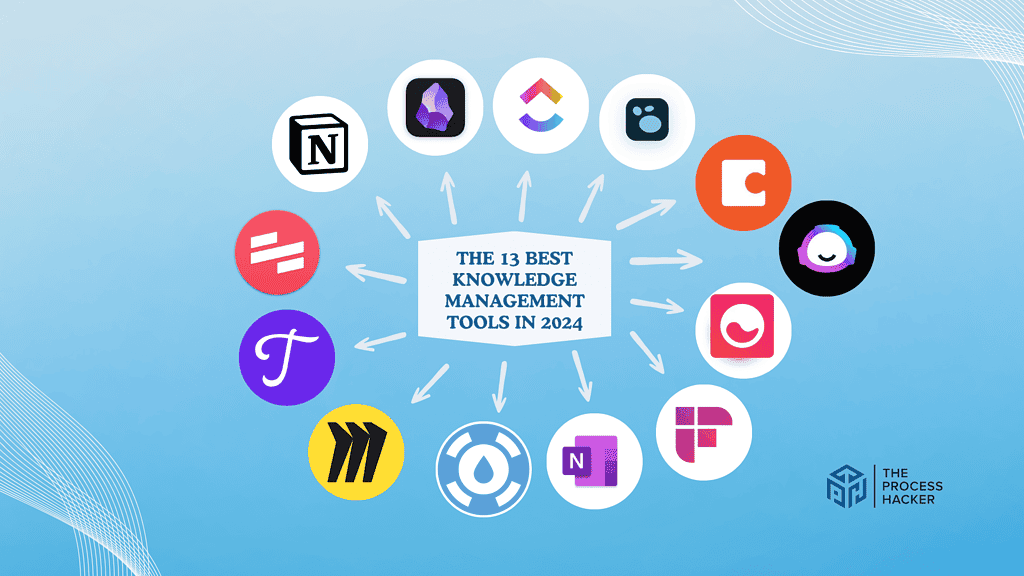
Knowledge management tools ensure that professional advantages are realized for both you and your business. Here’s how they simplify procedures and maximize efficiency:
- Centralized knowledge: Stop wasting time looking for information. These solutions provide a single source of truth for critical data, making it readily available to those who need it.
- Reduced redundancy: Avoid duplicating effort and contradicting data. A knowledge management system guarantees that everyone works with the most up-to-date and correct instructions.
- Enhanced decision-making: Give your staff the knowledge they need to make sound, data-driven choices.
- Preserved expertise: Capture and retain vital information, even when individuals change jobs or depart the firm.
What Features Should You Look For In A Knowledge Management Tool?
Here’s a summary of important aspects to consider when selecting a knowledge management tool:
- Powerful Search: You need a tool that makes locating information simple. Look for sophisticated search tools, such as the ability to filter results and search inside documents, to ensure you get precisely what you’re looking for.
- Intuitive Organization: A good knowledge management system allows you to arrange information in a way that is understandable to your team. This includes capabilities such as customized folders, labeling, and linking to relevant material.
- Collaboration Tools: The finest tools promote collaboration. Look for tools that enable several individuals to update papers, post comments, and get change notifications—all of which are essential for keeping your knowledge base current and effective.
- Ease of Use: If your staff doesn’t find the tool simple, they won’t utilize it. Prioritize solutions with a simple UI and a short onboarding period.
Buyers Guide: How We Conducted Our Research
Finding a solid knowledge management tool can significantly impact your organization. Here’s how we conducted our study to provide the most accurate recommendations:
- Identifying your needs: We started by understanding joint pain points businesses face when dealing with knowledge management. This included disorganized information, difficulty finding answers, and inconsistent processes.
- Hands-on testing: Whenever possible, we tried out the tools ourselves. This gave us first-hand experience with their usability and features.
- Analyzing pricing: We compared pricing models and plans to help you find the best value for your budget and team size.
- Evaluating features: We assessed each tool’s core features, paying attention to search capabilities, ease of organizing information, and collaboration tools.
- Pros and cons: We carefully weighed each tool’s strengths and potential weaknesses to provide a balanced view.
- Reviews and feedback: We scoured online reviews and sought feedback from those using the tools for real-world insights.
Final Thoughts on Knowledge Management Tools
As I researched the many knowledge management systems available, it became evident that the correct tools may greatly improve how your team gathers, distributes, and uses information.
Each tool has a distinct function meant to solve particular difficulties inside your business, such as speeding SOP generation with ScribeHow or boosting team collaboration with Miro’s whiteboarding capabilities.
Choosing the correct knowledge management tool entails knowing your team’s requirements and choosing a solution that satisfies those requirements while easily integrating into your current processes. Whether you want to optimize training procedures, boost project collaboration, or develop a consolidated knowledge repository, there is a product available that will work ideally for your team.
You should follow this advice since browsing the huge possibilities without a starting point might be daunting. This curated list was created to provide you a full overview of the greatest products on the market, making the choosing process as simple as possible. By harnessing these insights, you can make more educated decisions that will empower your team, simplify your processes, and ultimately propel your business ahead.
Remember that investing in the proper knowledge management solution is about more than simply increasing efficiency; it’s about creating a culture of continual learning and development that drives your team toward achieving its goals.
FAQs on Knowledge Management Tools
What’s the difference between knowledge base software and regular document storage?
Knowledge management tools go beyond simple storage. They offer powerful search, organization, and collaboration features to make your knowledge easily accessible and actionable.
Are knowledge management tools only for big companies?
Absolutely not! Businesses of all sizes can benefit from streamlining knowledge sharing – even solo entrepreneurs can use these tools to organize their expertise.
How do I get my team actually to use a knowledge management tool?
Focus on ease of use! Pick a solution with a simple interface, provide training, and celebrate when team members contribute to building the knowledge base.
Can I use a knowledge management tool for customer support?
Yes! Many tools offer features specifically for building customer-facing knowledge bases, reducing support tickets, and empowering customers to find their own answers.
Do knowledge management tools integrate with other software I use?
Many do! To create a seamless workflow, look for integrations with your existing project management, communication, and help desk tools.

